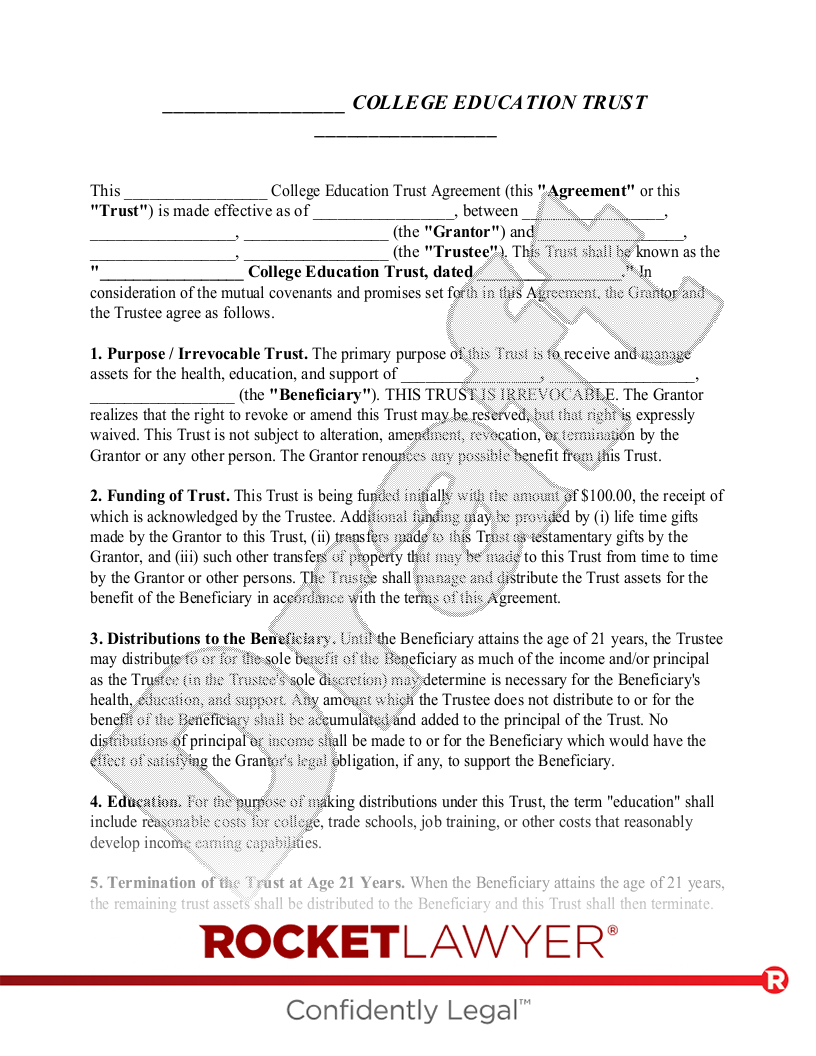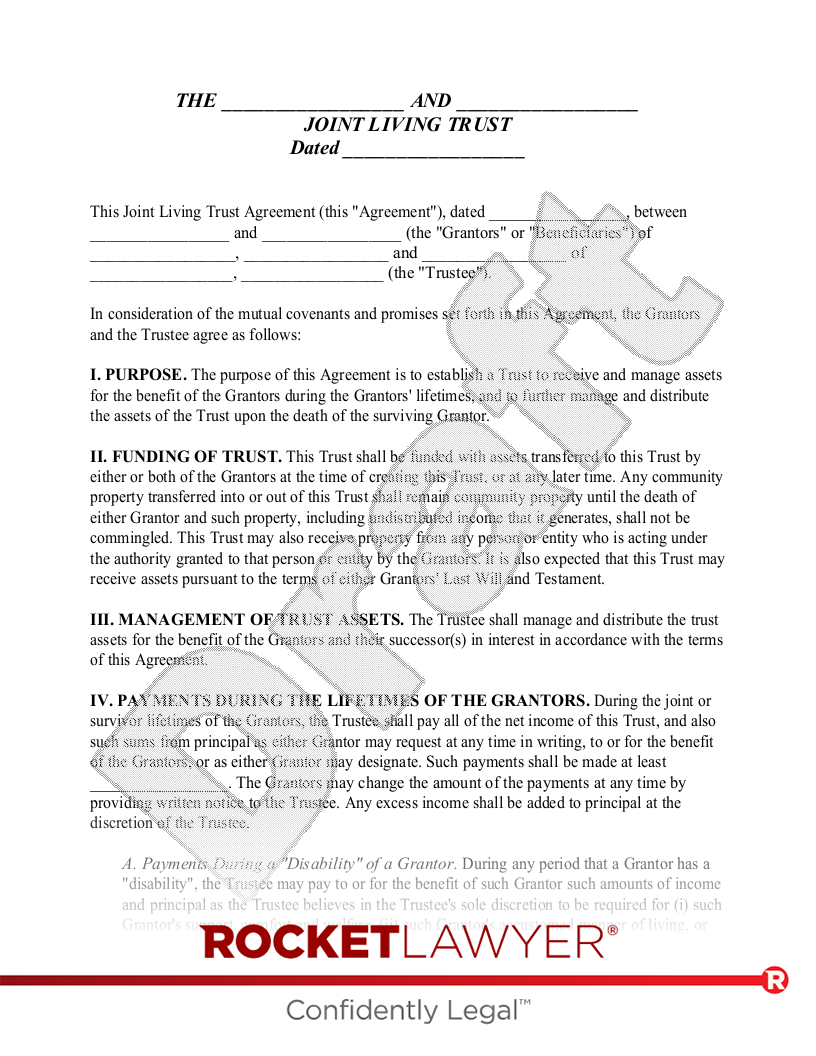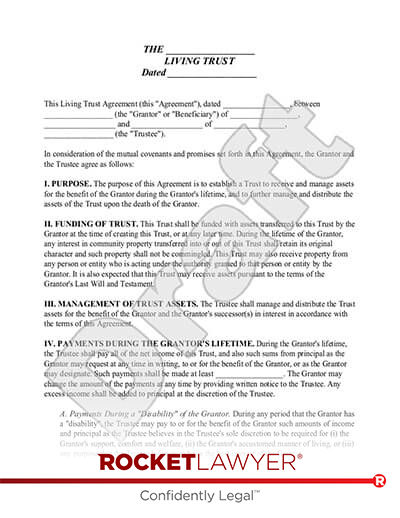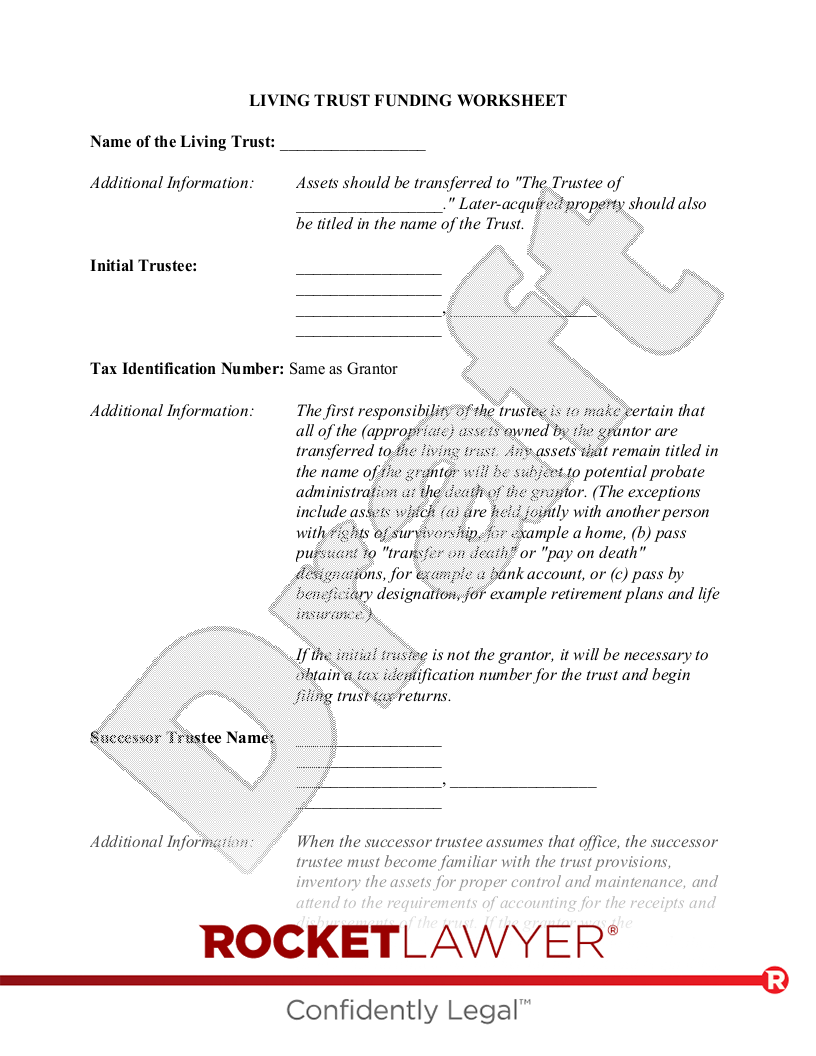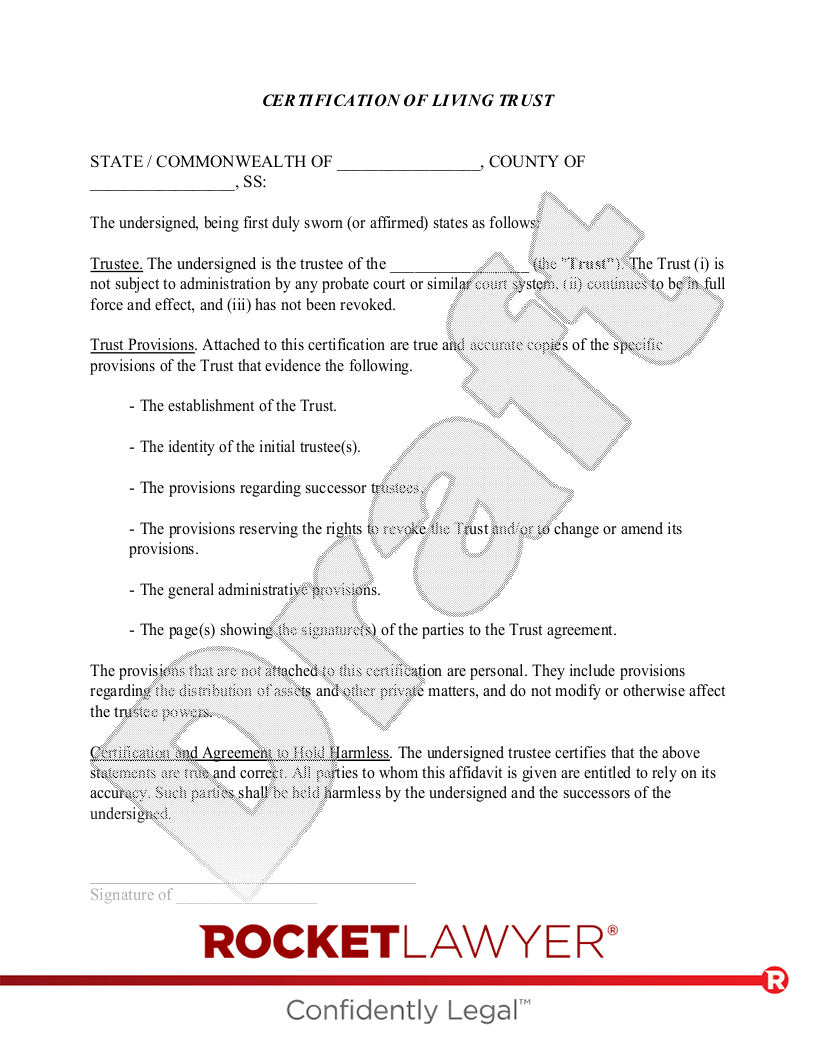. Death of the Beneficiary. If the Beneficiary dies before attaining the age at which this Trust shall terminate, the following provisions shall apply.
a. General Testamentary Power of Appointment. The Beneficiary shall have a "general testamentary power of appointment" to distribute the remaining trust assets. Having this power means that the Beneficiary may state in the Beneficiary's last will and testament (or in some other written document that is signed by the Beneficiary and acknowledged before a notary public or similar official) who will receive the remaining trust assets, if the Beneficiary dies before attaining the age at which this Trust shall terminate. The Beneficiary shall have the absolute discretion to state who the beneficiaries will be. The beneficiaries may include the Beneficiary's estate and/or creditors. To validly exercise this power, the Beneficiary's will (or other document) must specifically refer to this power. Upon distribution of the trust assets, this Trust shall then terminate.
b. Alternate Distribution. If the Beneficiary fails to validly exercise this general testamentary power of appointment, the Trustee shall distribute the remaining trust assets to
c. Failure of the Trustee to Receive Notice. If the Trustee does not receive actual notice of the existence of a will or other document exercising this general testamentary power of appointment within 90 days after the Beneficiary's death, then the Trustee may distribute the trust assets under the prior paragraph as if such power had not been exercised. However, if the power really has been exercised, this paragraph shall not prevent the beneficiary of such a power from enforcing the power as exercised.
d. Types of Distributions. Distributions to a beneficiary may be made (i) outright to such beneficiary, (ii) to any other trust that has been created for such beneficiary or (iii) to a custodial account for such beneficiary under the applicable Uniform Transfers to Minors Act (or equivalent legislation). The Trustee shall have the sole discretion to determine which alternative to use.
. Limitations on Powers. Notwithstanding any other provision of this Agreement to the contrary, the following limitations on powers shall apply.
a. No power granted to the Trustee in this Agreement or under law shall be construed to allow the Grantor, the Trustee, or any other person to purchase, exchange, or otherwise deal with or dispose of all or any part of the principal or income of this Trust for less than an adequate consideration in money or money's worth, or to enable the Grantor to borrow all or any part of the principal or income of the Trust, directly or indirectly, without adequate interest or security.
b. No person, other than the Trustee acting in a fiduciary capacity, shall have or exercise the power to vote or direct the voting of any stock or other securities of the Trust, to control the investment(s) of the Trust either by directing investments or reinvestments, or to reacquire or exchange any property of the Trust by substituting other property.
. Trustee Powers. Subject to the other provisions of this Agreement, and in addition to any other powers and authority granted by law or necessary or appropriate for proper administration of this Trust, the Trustee (and any successor trustee) shall have the following rights, powers, and authority, without order of court and without notice to anyone.
a. Receive Assets. To receive, hold, maintain, administer, collect, invest and re-invest any trust assets, and collect and apply the income, profits, and principal of the trust in accordance with the terms of this Agreement.
b. Receive Additional Assets. To receive additional assets from other persons and sources including assets by testamentary disposition; all such additional assets shall be held and administered under, and be subject to, the terms of this Agreement.
c. Retain Assets. To retain any asset, including uninvested cash or original investments, regardless of whether it is of the kind authorized by this Agreement for investment and whether it leaves a disproportionately large part of the Trust invested in one type of property, for as long as the Trustee deems advisable.
d. Dispose of or Encumber Assets. To sell, option, mortgage, pledge, lease or convey real or personal property, publicly or privately, upon such terms and conditions as may appear to be proper, and to execute all instruments necessary to effect such authority.
e. Settle Claims. To compromise, settle, or abandon claims in favor of or against the Trust.
f. Manage Property. To manage real estate and personal property, borrow money, exercise options, buy insurance, and register securities as may appear to be proper.
g. Allocate Between Principal and Income. To make allocations of charges and credits between principal and income as in the sole discretion of the Trustee may appear to be proper, and to create reserves for taxes, depreciation, and other lawful purposes.
h. Employ Professional Assistance. To employ and compensate legal counsel and other persons deemed necessary for proper administration, and to delegate authority when such delegation is advantageous to the Trust.
i. Distribute Property. To make division or distribution in money or kind, or partly in either, at values to be determined by the Trustee, and the Trustee's judgment shall be binding upon all interested parties.
j. Enter Contracts. To bind the Trust by contracts or agreements without assuming individual liability for such contracts.
k. Exercise Stock Ownership Rights. To vote, execute proxies to vote, join in or oppose any plans for reorganization, and exercise any other rights incident to the ownership of any stocks, bonds, or other properties of the Trust.
l. Duration of Powers. To continue to exercise the powers provided under this Trust notwithstanding the termination of the Trust until all of the assets of the Trust have been distributed.
m. Compensation and Expenses. To receive reasonable compensation for trustee services provided under this Agreement and be exonerated from and to pay all reasonable expenses and charges of the Trust.
n. Standard of Care. To acquire, invest, reinvest, exchange, retain, sell, and manage trust assets, exercising the judgment and care, under the circumstances then prevailing, that persons of prudence, discretion, and intelligence exercise in the management of their own affairs, not in regard to speculation but in regard to the permanent disposition of their funds, considering the probable income as well as the probable safety of their capital. Within the limitations of that standard, the Trustee is authorized to acquire and retain every kind of property, real, personal or mixed, and every kind of investment, specifically including, but not by a way of limitation, bonds, mutual funds, debentures and other corporate obligations, and stocks, preferred or common, that persons of prudence, discretion, and intelligence acquire or retain for their own account.
o. Methods of Distribution. To make payments to or for the benefit of the Beneficiary (including the possibility that the Beneficiary might be under a legal disability) in any of the following ways: (a) directly to the Beneficiary; (b) directly for the health, education, and support of the Beneficiary; (c) to the legal or natural guardian of the Beneficiary; or (d) to anyone who at the time shall have custody and care of the person of the Beneficiary. The Trustee shall not be obligated to see the application of the funds so paid, but the receipt of the person to whom the funds were paid shall be full acquittance of the Trustee.
p. Loans. To make loans to the Beneficiary for housing and support needs, educational purposes, or to take advantage of an exceptional business opportunity.




